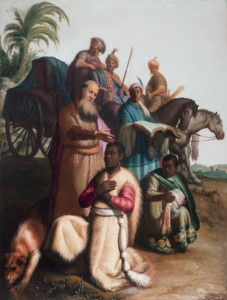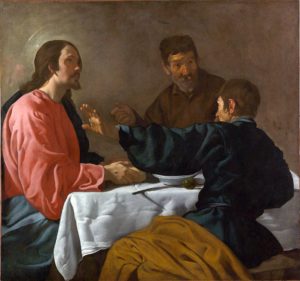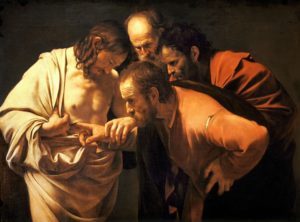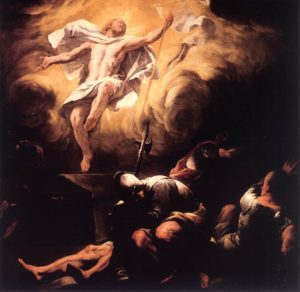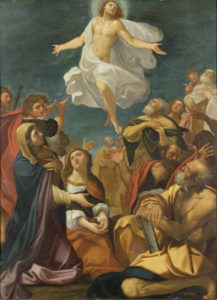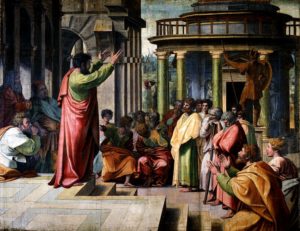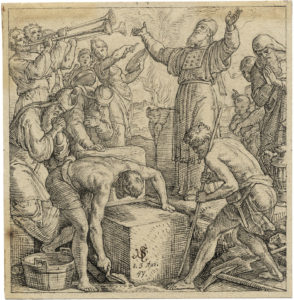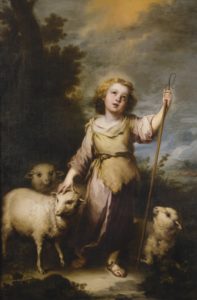Thoughts on Sunday’s Lessons for May 6, 2018
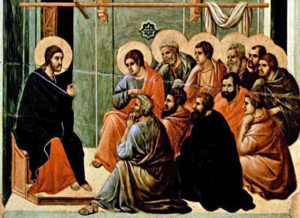
Detail of Jesus giving the Farewell Discourse to his Apostles after the Last Supper (1308-1311); Maestà, tempera on wood altarpiece by Duccio di Buoninsegna (1255-1319). Museo dell’Opera del Duomo, Siena. (Click image to enlarge.)
Sunday’s readings build on the theme that we heard last Sunday: God’s love pours out on all the world, and we are called to love each other as God loves us. Our first reading marks a key turning point in Acts: The joyful reaction of a Gentile crowd to Peter’s teaching reveals to the apostles that the Holy Spirit comes to everyone, not only Jewish Christians but Gentiles too. Everyone. Peter asks, “Can anyone withhold the water for baptizing these people who have received the Holy Spirit just as we have?” The answer is clear: Baptism is for all. As we heard in last week’s reading about the Ethiopian eunuch, “Here is water. What is to prevent it?”
Psalm: Psalm 98
This triumphant hymn of faith in God’s power is consistent with the theme that we hear throughout today’s readings: God’s victory shows divine mercy and faithfulness for Israel, but it is not a victory for Israel alone. God will judge not only Israel but all the people of the earth with mercy and equity. In a resounding symphony of thanksgiving, not only the people but even the sea, the lands, the rivers and hills ring out their joy, singing to the Lord a new song.
Second Reading: 1 John 5:1-6
Our second reading and Gospel continue seamlessly where last Sunday’s readings left off, expanding on the same theme. We are commanded to love one another as Jesus loves us. Now we learn in the First Letter of John that the way to love God – to become a child of God – is by obeying God’s commandments, a direction that follows the Jewish tradition of love for God’s law and teaching. In words that echo the triumphant sentiment of today’s Psalm, we hear that our faith in Jesus Christ as the Son of God brings God’s victory into the world.
Gospel: John 15:9-17
Mark, Matthew and Luke all tell us that Jesus taught – in the spirit of the essential Jewish prayer, the Shema – that the greatest commandment is to love God with all our heart and soul and strength and mind. Then Jesus connects the dots: It follows, then, that we are to love our neighbor as ourselves. In John’s Gospel Jesus expands on this theme. Just as God has loved Jesus, so Jesus loves us. Therefore, he commands, “Love one another as I have loved you. No one has greater love than this, to lay down one’s life for one’s friends.” Through our faith we go out and bear fruit that will last, like the branches of the vine in last week’s Gospel.

